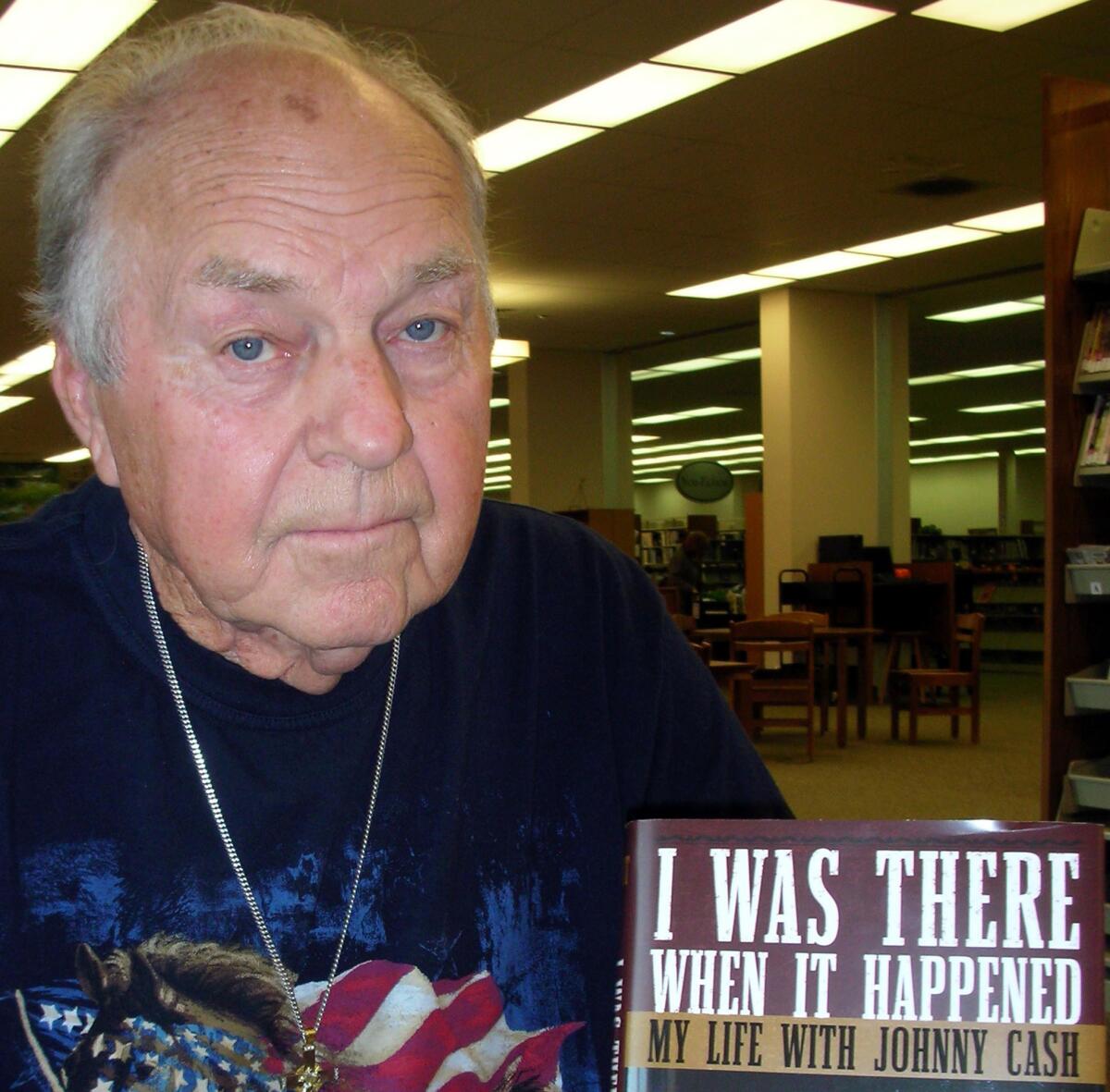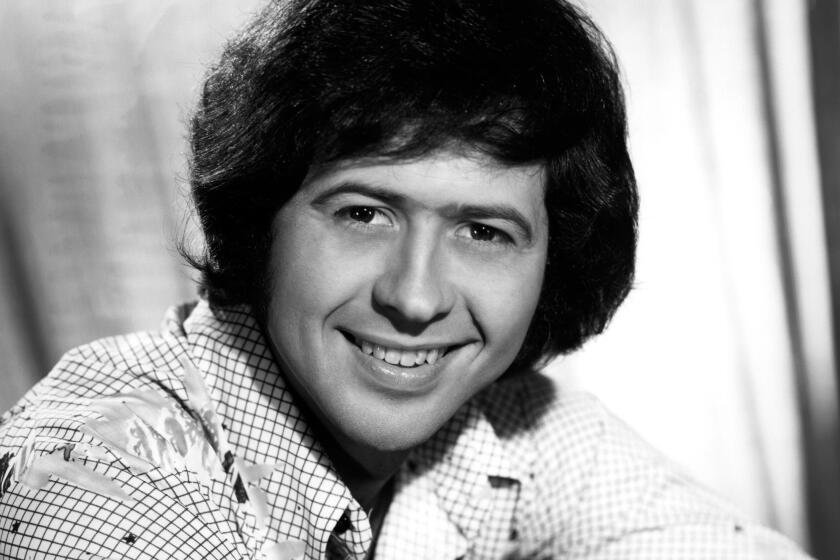Marshall Grant dies at 83; bass player, manager for Johnny Cash

Marshall Grant, who played standup bass in Johnny Cash’s original trio and helped create the legendary singer’s distinctive, rhythmic sound in the 1950s, has died. He was 83.
Grant, who remained with Cash as a bass player for more than two decades and later managed the Statler Brothers, died Sunday in a hospital in Jonesboro, Ark., according to a spokesman for Memorial Park Funeral Home and Cemetery in Memphis.
A resident of Hernando, Miss., Grant was in Jonesboro last week for a Johnny Cash Music Festival to raise funds for the restoration of Cash’s boyhood home. The Thursday concert included George Jones, Kris Kristofferson, Rodney Crowell and Cash’s children, John Carter Cash and Rosanne Cash, among others.
“Marshall was supposed to give a speech, even play his bass on one song,” Rosanne Cash told The Times Monday. Grant had participated in the rehearsal Wednesday afternoon but was hospitalized with an aneurism that night, she said.
“I loved him so much — he treated me like a daughter,” she said, adding that Grant called her almost every month in recent years to talk about “the old stories.”
Teamed with lead guitarist Luther Perkins, Grant was half of the Tennessee Two, whose first record with Cash, “Hey, Porter”/”Cry, Cry, Cry,” was released on Sam Phillips’ Sun Records label in 1955.
Grant continued to play bass with Cash — he also served as Cash’s road manager — from 1954 to 1980 and played on Cash hits, including “Ring of Fire,” “Folsom Prison Blues” and “I Walk the Line.”
Robert Hilburn, The Times’ former pop music critic, said Grant’s significance extended beyond helping the legendary singer develop his famous sound.
“He was a true friend to Cash and can even be credited with saving his life on numerous occasions,” Hilburn, who is writing a biography of Cash, told The Times Monday.
“He was just heartbroken when Cash started getting so involved in drugs in the ‘60s,” said Hilburn. “He spent countless hours to find the drugs and get rid of the drugs — he and [Cash’s wife] June Carter kind of worked together on that.”
Grant and Perkins were working as mechanics with Cash’s brother Roy in Memphis in 1954.
“Sometimes we’d bring our guitars to work, and when things were slow, we’d go in the back and pick and have some fun,” Grant recalled in a 2010 interview with The Commercial Appeal. “One day, Roy said, ‘Grant, I got a brother in the service who sings just like Hank Snow, and I bet he would love to pick a little with y’all when he gets out.’”
Cash, Grant and Perkins all played rhythm guitar when they began playing together, but they made changes after deciding to audition for Phillips. Grant had never played a bass before.
The combo’s famous sound came out of rehearsals. “We sat around trying to figure out what we were doing,” Grant recalled in the 2010 interview. “Luther and I played the same notes on bass and lead guitar, and John with that old awkward lick that he had … well, here come this god-awful sound. But we worked with it.”
Before the night was over, he said, “We could go from E to A to D and back. Slap, hit. Slap, hit. Boom-chicka, boom-chicka, boom-chicka; and all of a sudden the sound of Johnny Cash and the Tennessee Two was born.”
As musicians, Hilburn said, all three of them were “very limited, and Grant always said maybe if they had been better musicians they would have just copied what Nashville was doing in country music, and Cash’s records would have been kind of conventional.
“So they came up with this primitive sound, and it was remarkable. When Johnny Cash went to Sam Phillips to get a record contract, he almost apologized for their limitations. But Sam loved that sound. He said, ‘Don’t change a thing.’
“That primitive beat almost sounded like a heartbeat to me. It was reinforcing the honesty and character of Cash’s voice and Cash’s stories.
“It’s almost like lightning striking. These three guys getting together and creating this sound.”
Despite a falling out that led to Cash firing Grant and a lawsuit filed by Grant over money he claimed he was owed, Grant and Cash reconciled in the late ‘90s.
When Hilburn interviewed Grant a few weeks ago for his Cash biography, Grant recalled the time he visited Cash at his home shortly before the singer’s death in 2003.
“They were talking about the stuff Cash had accomplished, the great career he’d had,” said Hilburn. “He was trying to cheer him up and said, ‘You sure did it all.’ And Cash looked at him and said, “No, Marshall, we did it all.’
“They really were a team. Cash was an essential part of it, but Marshall and Luther were right there with him.”
Grant, who was born outside Bryson City, N.C., on May 5, 1928, and began playing guitar at age 10, titled his 2006 memoir “I Was There When It Happened: My Life with Johnny Cash.”
A complete list of Grant’s survivors, who include his wife Etta and son Randy, was not available.
More to Read
Start your day right
Sign up for Essential California for the L.A. Times biggest news, features and recommendations in your inbox six days a week.
You may occasionally receive promotional content from the Los Angeles Times.






